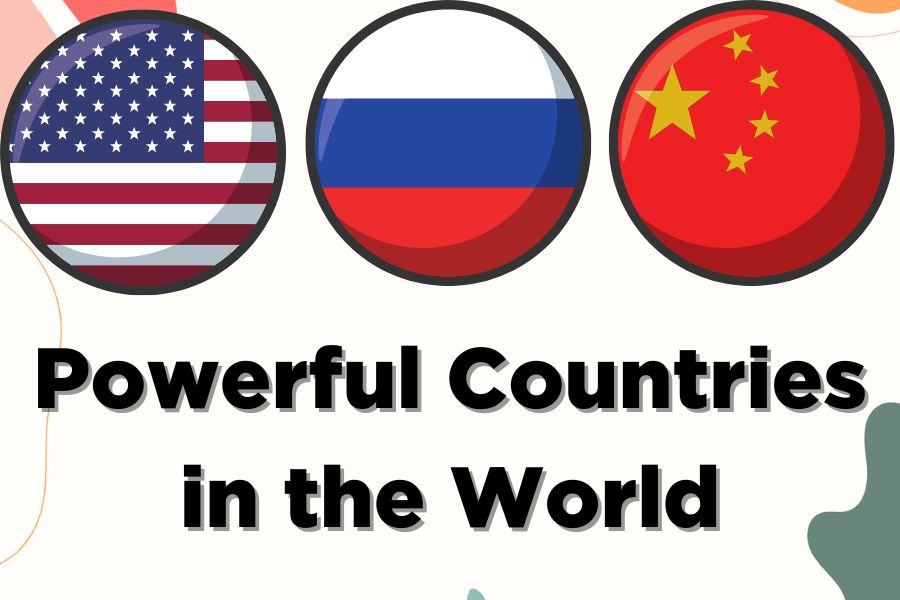Top 10 Most Powerful Countries in the World – Country Power Rankings
Country Power Rankings have become essential for nations to understand their global standing, influencing decisions across various industries. Despite the challenges in determining a country’s power, seven key factors have been identified: Economic Power, Population Power, Military Might, Power of the Environment and Resources, Power in Politics, Power in Culture, and Powerful Technology.
- United States:

The United States has maintained its position as the most powerful nation since the early 20th century. Despite concerns about its political system and demographic trends, the U.S. continues to dominate in economic, military, and technological aspects.
- China:

China’s rapid transformation in the last four decades has solidified its global influence. With a massive population, a booming economy, technological advancements, and a growing military, China is on track to potentially surpass all other nations in the future.
- India:

India’s global influence has grown steadily due to its large population and economic strength. Despite facing challenges in political, military, and geographic aspects, India’s recent economic expansion and nuclear capabilities make it a significant regional player.
- Russia:
Once the second-most powerful nation during the Soviet era, Russia’s strength diminished after the Soviet Union’s collapse. Presently, Russia relies on its vast natural resources, political influence, and military power to maintain its position.
- United Kingdom:
While the UK was a dominant global power in the late 19th and early 20th centuries, it has gradually declined due to geographic and demographic constraints. However, its strong economy, technological prowess, and cultural influence keep it as a solid middle power.
- France:
France holds the sixth position, slightly edging out the UK, primarily due to its leading role in the European Union. Despite economic challenges, France maintains political influence and remains a significant player in global affairs.
- Japan:
As the world’s third-largest economy, Japan focuses on economic and technological sectors. However, its political and military power is relatively limited, and demographic decline poses challenges to its overall power.
- Saudi Arabia:
Saudi Arabia’s economic impact stems from its abundant hydrocarbon resources, and its cultural influence is notable as the birthplace of Islam. The nation’s ability to modernize and diversify its economy will determine its future strength.
- Canada:
With a small population, Canada exerts influence through its vast geography and high levels of security and stability. While overshadowed by its southern neighbor, Canada has the potential for increased dominance.
- Germany:
Germany, a major export economy with technological prowess, relies on its manufacturing sector. However, its military, environmental, and demographic strength are comparatively low, limiting its overall power.
Summary:
Population, land area, and technology remain crucial factors in determining a nation’s global standing. The United States remains the dominant power, with China as the second-largest. Other nations, including emerging economies like India, have potential for growth but are still far behind the superpowers. The U.S.-China relationship will continue to shape the global balance of power in the coming years.
Conclusion:
Country Power Rankings provide valuable insights for nations to make informed decisions. While challenges exist in determining a country’s power, considering economic, military, and technological factors is essential. The U.S. maintains its dominance, with China closely trailing, and the global balance of power hinges on their relationship.

